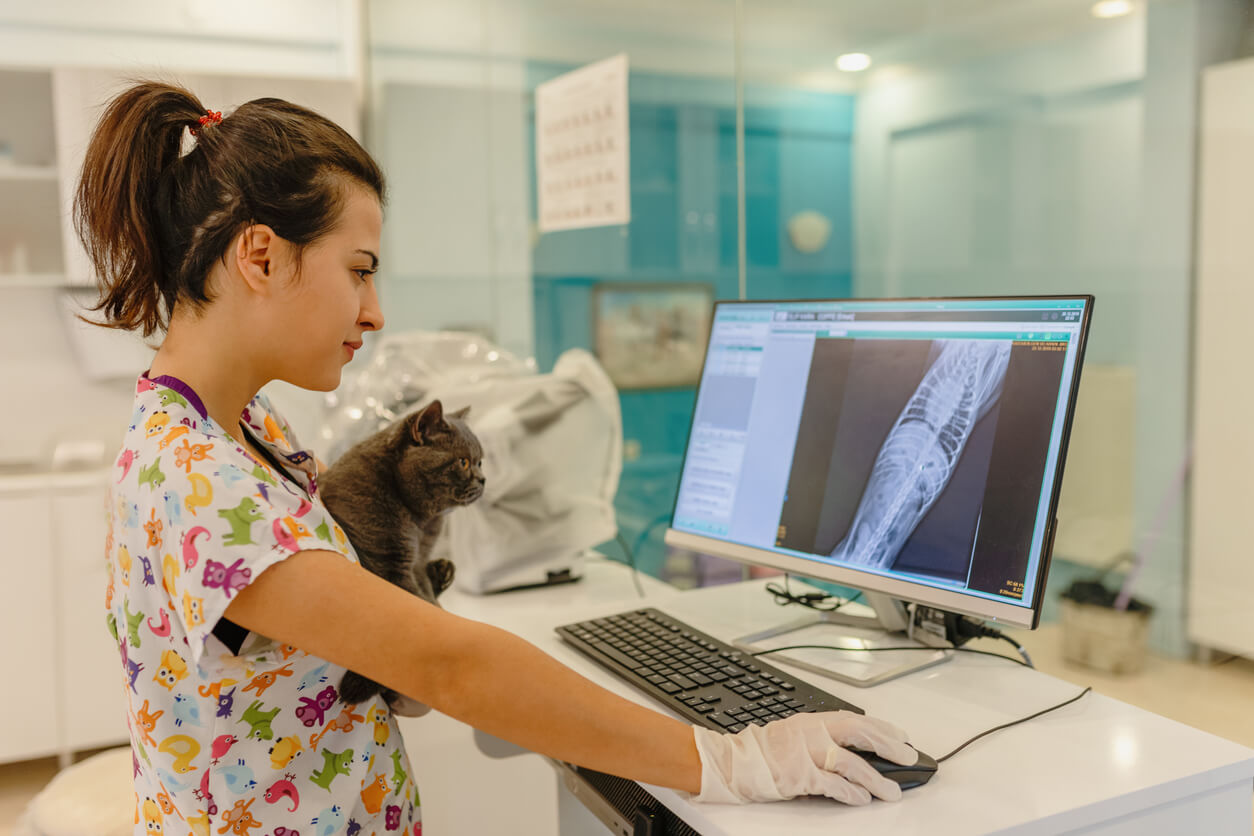When an animal develops a medical issue that requires advanced care, surgery is sometimes necessary. When this is the case, an animal’s veterinarian will usually refer the pet to a veterinary surgeon. In this article, we examine the specialized field of veterinary surgery.
Veterinary Areas of Specialization
Like the majority of health care fields, the veterinary profession has several areas of specialization. In addition to surgery, common areas of specialization in the veterinary field include:
- Internal medicine
- Radiology
- Anesthesiology
- Ophthalmology
- Neurology
- Emergency and critical care
- Dermatology
- Cardiology
- Oncology
- Sports medicine and rehabilitation
Veterinary Surgery Certification
Routine surgeries, such as soft tissue and orthopedics surgeries, are usually performed by general practice veterinarians. More complicated surgeries, however, are usually performed by board-certified veterinary surgeons. Becoming certified as a veterinary surgeon is a long process that requires advanced education and training. Veterinarians who specialize in surgery obtain certification through the American College of Veterinary Surgeons (ACVS), which is a veterinary specialty organization that certifies veterinarians in large and small animal surgery. The ACVS undergoes a comprehensive evaluation every three years to ensure that it maintains the required standards for its certification process.
Advanced Training
Veterinary surgeons undergo advanced training following veterinary school. This training consists of a minimum of a one-year internship and a three-year residency program that meets ACVS standards. During residency, surgeons in training must meet specific training and caseload requirements. In addition, applicants are required to publish a research study and pass a rigorous exam.
The Process
As noted above, general practice veterinarians may perform surgery as part of their veterinary practice. Difficult procedures, however, are usually best managed by a specialist. When a general practice veterinarian determines that an animal requires an advanced surgical procedure, he or she refers the animal to a veterinary surgeon. After this referral, the two veterinarians usually work closely together with both before and after surgery to ensure continuity of care for the animal. After surgery and any follow-up care, the animal’s primary veterinarian resumes its ongoing care.
The Bottom Line
Veterinary surgeons perform complicated surgical procedures on animals. They also provide consultations to general practice veterinarians on difficult and unusual cases. With their advanced training, veterinary surgeons are an important part of the animal health care field.
Contact our Experienced Veterinary Attorneys
If you are a veterinary practice owner, you should have an experienced veterinary attorney as part of your team. At Mahan Law, our veterinary professionals know what it takes to succeed in the veterinary industry. Whether you need assistance with a specific legal matter, or you want to improve the performance of your practice, Mahan Law is here for you. When you come to us for help, our experienced veterinary attorneys will work diligently to ensure that your goals are met. Please contact our office as soon as possible to schedule a free consultation.

